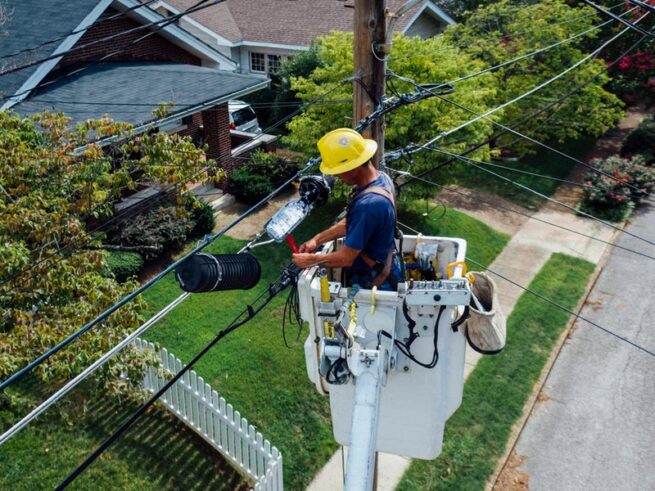Buying a home isn’t easy, especially for first-time buyers. You won’t have the expertise to navigate the maze of home loans in the market. You may even find yourself wondering what is a conventional real estate loan. A conventional loan is any mortgage that doesn’t meet the requirements for government-backed loans like FHA, VA, or USDA loans.
But getting a conventional loan can be difficult if you don’t know how it works. That’s why we’ve put together this guide to help you understand what are conventional loans and how it works so you can decide whether it’s right for you.
What Are Conventional Loans
This type of loan is a conventional mortgage meaning it is not insured or guaranteed by the government. These loans are also known as ‘non-government loans.’ These loans can be obtained from banks, credit unions and other lenders. Also, conventional loans typically carry higher interest rates than government-backed loans and don’t have as many restrictions on who qualifies for them.
Suppose you’re applying for a conventional loan. In that case, you’ll need to provide proof of income, your credit history and an estimate of how much funds are available for your down payment on the property you want to purchase.
You should also expect to pay closing costs when buying a home using conventional financing instead of FHA or VA financing, which requires no out-of-pocket expenses at the closing.
You can visit https://mortgage.shop/conventional-mortgage-loans/ if you want to learn deeper about conventional loans and decide if they are the ideal loan for you.
How Does Conventional Loan Work
Two main parties are involved in the conventional loan process: the borrower and the lender. The borrower is the one who applies for a home loan, while the lender does all of the work to approve and close out your loan.
Once you receive approval from a lender, you enter into a contract with them that details how much money they’re willing to lend you along with what monthly payment amount will be required as long as specific conditions are met (i.e., making timely payments).
The borrower is responsible for making all payments on time to maintain their credit score. If this happens, it could help improve their financial health by lowering interest rates and reducing debt over time.
The bank or financial institution acts as intermediaries between borrowers and lenders. This means they collect payments from borrowers while issuing checks (aka funds) back to lenders when necessary, acting as middlemen between two separate sides with different needs or goals.
Properties You Can Buy With Conventional Loan
Conventional loans are available for single-family homes, townhouses, condos and co-ops. They can also be used to purchase investment properties such as small apartment buildings or duplexes.
Suppose you’re looking to buy or refinance an existing home with a conventional loan. In that case, the property must be your primary residence, meaning that you intend it to be your primary home for at least one year after closing the loan.
Moreover, conventional loans are available for second homes. However, if you decide to sell your primary home within two years after buying another with this loan, use any part of its proceeds to purchase a new home within one year from selling the first one. Then that transaction will be considered an early withdrawal penalty since there would have been no down payment on it otherwise.
Credit Score Requirements
The conventional guidelines require the minimum credit score for a conventional loan to be 620. This is the lowest score you can have and still qualify for this loan. If your credit score is below this, there are things you can do to raise it and boost your chances of getting approved.
Checking your own credit report is easy. You’ll need to pull three reports from each credit bureau (TransUnion, Equifax, and Experian). Doing so will let you know what lenders see when they look at your account.
Debt-to-Income Ratio Requirement
Another conventional guidelines requirement you need to meet is the debt-to-income ratio. This measures how much you owe compared to how much you earn each month. It’s expressed as a percentage, so it should be around 36% and no more than 43%. However, if your ratios are too high, it can be a red flag that you won’t be able to pay back your mortgage loan because of other debts.
The reasoning behind this requirement is simple. If your monthly income isn’t enough to cover your expenses, including housing payments. Then something has got to give; other bills like car loans or credit card payments are usually given. If this happens often enough, lenders may decide they don’t want more than the interest rate on their money when they lend it out.
Down Payment Requirements
Down payment requirements vary by lender but typically range from 5% to 20%. Usually, lenders look at your income and the amount of cash you have in other accounts when deciding how much of a down payment you can afford.
And if you have an excellent credit score and plenty of savings, you will only need a small down payment. However, if your credit isn’t great or you don’t have any extra money, it may be hard to find a conventional loan with less than 20% equity requirements.
Loan Approval Timeline
Generally, the average time it takes to approve a home loan is around 10 days. But this can be longer if something isn’t perfect on your application, like your credit score or down payment amount.
If you have less than perfect credit or a low credit score, your lender might need more time to make sure they’re approving you for the best possible rate and terms. If that happens, just hang tight. They may need to consult with their underwriter (or someone else) to get things approved quickly and efficiently.
What If I’m Declined For A Conventional Home Loan
If you are declined a conventional home loan, don’t give up. Several things can happen. People who are denied often do not get approved by their first lender.
You should try again with another lender or maybe even the same one later. A different loan officer may be able to help you get approved. Or, you might be offered another loan by the same lender if your credit score, income and employment history have improved since you applied last time.
Other reasons people have been denied include:
- Having too much debt-to-income ratio
- Not having enough assets for the down payment and closing costs
If these factors make sense, but they still can’t get approved because their credit isn’t good enough, they need to work on improving it before applying next time around.
Does A Conventional Loan Need Private Mortgage Insurance?
Suppose you have a minimum of 20% equity in the property. In that case, your lender may be able to avoid the need for private mortgage insurance. However, if you plan to purchase a home with less than 20% down or refinance an existing loan with less than 20% equity. Then you will be required to settle private mortgage insurance (PMI).
This is considered by many lenders as an additional expense that must be paid monthly. In most cases, when borrowers can afford a higher down payment on their homes and avoid PMI altogether, it’s worth saving up for that extra cash. This way, they don’t have to deal with added fees and expenses later.
The amount of money needed per month will vary depending on the size of your new loan amount and the type of loan being used (30-year vs 15-year). Therefore, it’s recommended that borrowers consult their lending institution before signing any paperwork to know exactly what their monthly fees will look like once everything has been finalized by both sides.
The Advantages Of A Conventional Loan
Conventional loans are available for many borrowers with low credit scores and less-than-perfect credit. This can be appealing to people who have experienced financial hardship due to job loss or other factors.
Also, this loan type conventional has flexible underwriting guidelines. This means that you don’t need all of the same documentation that you would otherwise require from a lender if your credit is marginal. Moreover, conventional loan rates are also lower than FHA and VA rates.
Because conventional loans aren’t backed by the federal government, there are no special requirements for down payment amounts like with government-backed programs such as FHA loans. In most cases, you won’t need better than average or perfect credit to qualify for a conventional mortgage loan. On top of that, conventional mortgages usually come with some pretty low closing costs.
The Disadvantages Of A Conventional Loan
If you’re considering applying for a conventional home loan, you should be aware that there are some definite downsides to this type of loan.
First, the credit score requirements are higher than with an FHA loan. Conventional guidelines typically require scores of 620 or above compared with 580 or above for FHA loans. You also need to meet strict debt-to-income ratio guidelines.
Traditional mortgage lenders only allow up to 43% DTI (debt-to-income). In comparison, FHA mortgages allow up to 50% DTI if you have a 720 credit score and a 20% down payment on your home purchase.
Also, keep in mind that meeting all the eligibility requirements is more complicated with a loan type conventional than it is with an FHA loan. Therefore, don’t let yourself get discouraged if, at first glance, your finances don’t seem like they’ll make it past underwriting.
Conclusion
In conclusion, it’s important to remember that there are no hard-and-fast rules regarding home loan conventional guidelines. Therefore, check with your real estate agent, banker or mortgage provider before applying for a loan so that they can answer any questions about these guidelines. If you take the time to educate yourself on these conventional guidelines and make an informed decision, you’ll be well on your way to getting approved for home ownership.





More Stories
Buying a Condo
Red, White and Blue – What Are The Timeshare Seasons?
What You Need to Know About Selling Your Condominium in Today’s Market